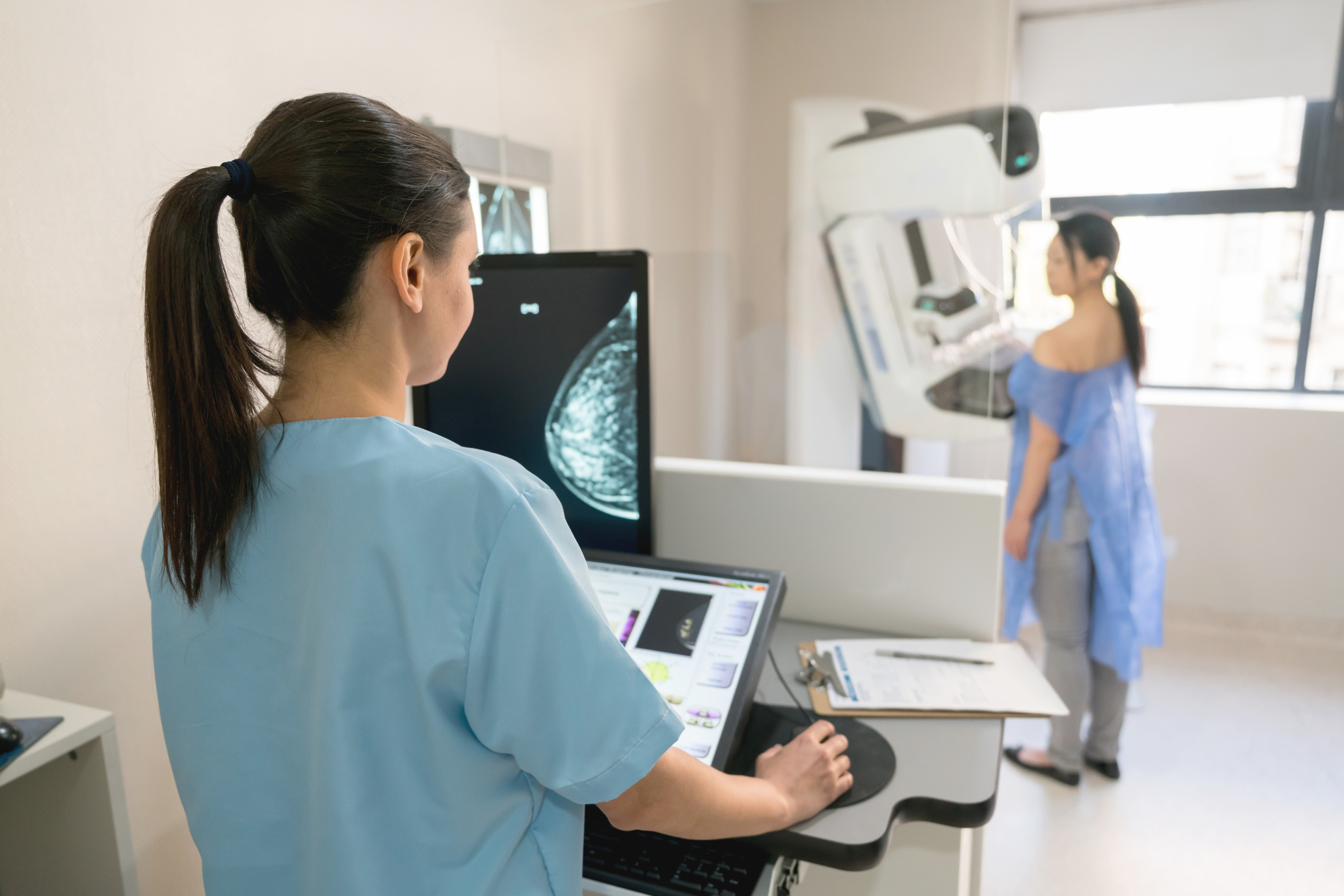
Mammography continues to be the gold standard screening tool for the early detection of breast cancer. In early March, the U.S. Food and Drug Administration (FDA) — a regulatory agency that sets national standards for mammogram facilities — updated its guidelines to require that patients be notified about the density of their breasts after the screening test.
But what is breast density, and why is it important? In this Q&A, Summit Health’s Medical co-directors of breast imaging, Benjamin Schneider, MD and Sue Jane Grosso-Rivas, MD tell us everything we need to know about breast density and how it can affect mammogram findings.
Q. What is breast density?
A. Dr. Grosso-Rivas: Breast density, as it relates to mammograms, is a measure of how much glandular and fibrous tissue there is in your breast compared to fat tissue.
When looking at a mammogram, fat is black, and tissue is white. Cancer also shows up as a white area and is harder to see when there is a white background of tissue. This is why dense breasts may make it more difficult to see cancer.
Q. Are dense breasts common?
A. Dr. Schneider: Having dense breast tissue is common. Some women have more dense breast tissue than others.
The density of your breasts can vary from year to year. For most women, breasts become less dense with age. But in some women, there is little change. Your breast may become denser with weight loss or hormonal fluctuations.
Q. Why is it important to know your breast density?
A. Dr. Grosso-Rivas: Women with dense breasts are four to six times more likely to develop breast cancer.
Q. What are the different categories of breast density?
A. Dr. Schneider: There are four categories of breast density. They range from almost all fatty tissue to extremely dense tissue with very little fat.
Category A: Almost all fatty tissue
Category B: Scattered areas of dense glandular tissue
Category C: Described as heterogeneously dense, which means more of the breast is made of dense glandular tissue with only some fat. This can make it hard to see small masses in or around the dense part of the breasts.
Category D: Described as extremely dense. This means the breast is made up of mostly white glandular and fibrous tissue, which makes it harder to see masses.
If your mammogram screening shows you have dense breasts, category C or D, you may qualify for supplemental screening with ultrasound or Breast MRI.
Q. How do you know if you have dense breasts?
A. Dr. Grosso-Rivas: Radiologists are doctors who “read” mammograms and other types of imaging tests. They check your mammogram for abnormal areas, and they also look at breast density. Your radiologist will indicate what category of density you have in your mammography report. You cannot tell if you have dense breasts by how they feel on the exam.
Q. How can breast density affect mammogram findings?
A. Dr. Schneider: Breasts that are dense can make it more difficult to find cancer.
Q. How does Summit Health report breast density to patients?
A. Dr. Grosso-Rivas: Your radiologist will write a summary of their findings also known as a mammogram report. Summit Health sends this report to the patient by mail and also to the referring physician.
Q. How long has Summit Health been reporting breast density?
Dr. Schneider: On May 1, 2014, the New Jersey breast density law went into effect. It requires all radiology practices to include certain language in mammography reports and letters that make patients aware of the significance of breast density. Since that date, Summit Health has chosen to communicate whether a patient has dense breasts or not in the summary that is mailed to them.
Q. When should you start having regular mammograms?
Dr. Grosso-Rivas: It depends on your age and family history. Talk to your physician about what is right for you using this outline as a general guide.
- Women, ages 40-49, should discuss benefits and risks with their doctor.
- All women over age 50 should have mammogram screenings every 1 to 2 years. Talk to your doctor about what is right for you.
- Individuals who have a family history of breast cancer may be advised to start screening at a younger age.
Make your appointment now
To schedule a mammogram or any other breast imaging, please call 862-289-1987. Same-day availability for screening mammography is available at multiple locations. Our scheduling team will help direct you to the site that is closest to you.
